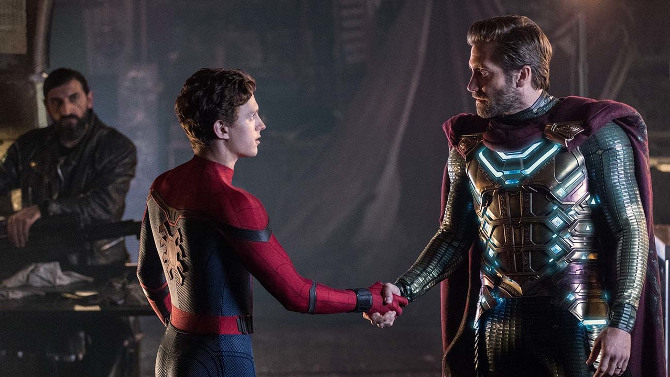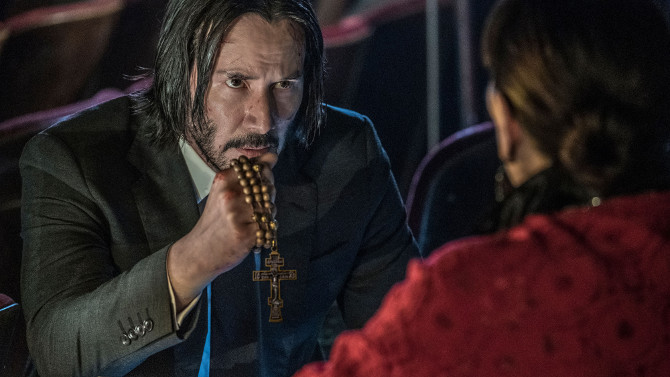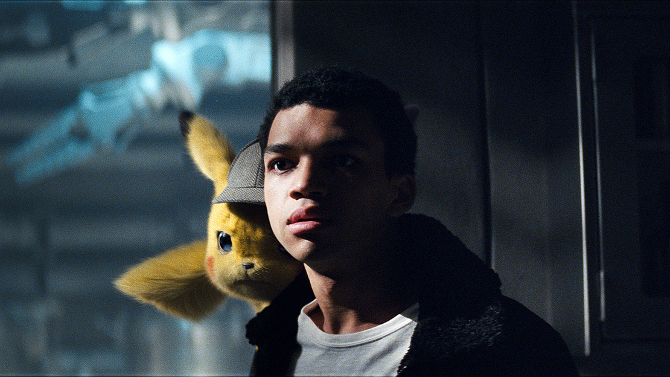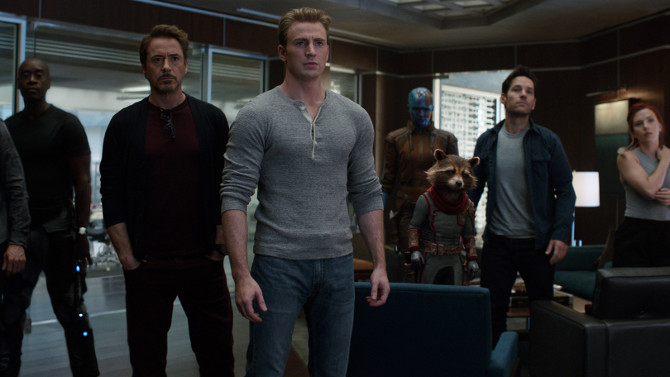
An Impossible Mission
How do you wrap up a franchise like Mission: Impossible? That is, if this even is the final installment... as they’ve made it sound (while at the same time, stars not named ‘Tom Cruise’ pipe up and suggest that might not be so). It has been twenty-nine years, with different writers and visionary directors – from twisty Brian De Palma and the action hair stylings of John Woo, to the lens flares of J.J. Abrams and animation expert Brad Bird, it was only about ten years ago that the franchise decided to opt for The Usual Suspects scribe Christopher McQuarrie for the final four. To return to that opening question once more, you could end with a Sopranos’ style cliffhanger, simply make another entertaining movie like the many before – like Everybody Loves Raymond did it with its final episode, or try to tie everything up in a neat little bow by bringing everything together as the Daniel Craig era did with James Bond. Well, it is definitely more along the lines of the latter example, with some distinct differences.
-

Tarantinowood
Once Upon a Time ... in HollywoodJuly 28, 2019Once upon a time. . . in Hollywood, a young man named Quentin was fascinated with all things movies. So much did he love those moving pictures of the silver screen that he found a job at the Video Archives, a rental store in Manhattan Beach, California. And, almost like a fateful fairy tale scene in one of his beloved movies, a young Tarantino somehow found his way into the business, becoming a director of success and acclaim. Utilizing his unique vision, he re-purposed those films that he devoured in his long hours at the video store, bringing history alive with a modern spin, melding past and present in most unique ways. With a romantic brainstorm, the acclaimed filmmaker decided that ten motion pictures would encompass his entire filmography, making his most recent effort, Once Upon a Time ... in Hollywood, his second last, a narrative that turns a loving eye to his fantastical hometown – all I’m missing is voice over work from Kurt Russell, and I’ve got the beginnings of my intro to a documentary on the man. A revisionist history of 1969 Los Angeles, Quentin Tarantino writes and directs his least focussed picture, a meandering love letter to the City of Angels. Born in 1963, the filmmaker, who was only the tender age of six the year the movie is set, utilizes his vast knowledge of television and movies to build a vivid picture of that time. Though, by doing so, it also makes for his least accessible feature to date. . . for not only is there graphic violence, much like all of his other pictures, but, to my estimation, you also have to be a passionate film history buff while also needing to have a love for the way movies are crafted to truly appreciate what Tarantino is doing here.
-

Jungle Love
Jumanji: Welcome to the JungleJuly 21, 2019A surprisingly original, unique and sharp take on video games (playing on numerous 90s video game tropes), Jumanji: Welcome to the Jungle updates the original Jumanji board game premise for the twenty-first century. An interesting layer of meta finds Jake Kasdan directing – son of Lawrence Kasdan (co-writer of The Empire Strikes Back, Raiders of the Lost Ark. . .), Welcome to the Jungle comes off as a quasi-combination of the two. . . the foursome who centre the feature are a ragtag team like in Star Wars, while the jungle adventure will immediately remind many of an Indiana Jones archaeology adventure – never a bad idea to create a hybrid of two of the most popular franchises in American history.
-

Spinning a Sequel
Spider-Man: Far from HomeJuly 12, 2019Walking a tightly strung web all the way from Queens, New York to historic Europe, Spider-Man: Far From Home has a few stumbles, but miraculously stays balanced on its epic journey. A sequel to 2017's Spider-Man: Homecoming, this 2019 adventure, which is also helmed by director Jon Watts, takes place almost immediately following the events of Avengers: Endgame (fear not, still no spoilers – though there are in this film), with Peter Parker’s Spider-Man (Tom Holland) struggling with his newfound fame (after all, he is still just a high school student). Dealing with questions like, ‘Is he an Avenger?’, or ‘What part does he play following the outcome of Endgame?’, he is like a spider in the headlights. . . looking for some much needed time off.
-

There’s No Rest For the ‘Wick’ed
John Wick: Chapter 3 - ParabellumMay 17, 2019Some roles just fit an actor like a finely made bespoke suit – and, in this case, said suit has a special bulletproof lining. . . you guessed it, I’m talking about Keanu Reeves as John Wick. Everything, from his direct delivery, longish hairstyle, and action persona, fit the character, and in the third feature in the franchise, 2019's John Wick: Chapter 3 - Parabellum, director Chad Stahelski (who has helmed all three efforts) builds on the previous two, creating an over the top, stylistic extravaganza that will make action fans giddy! If you saw Chapter 2, the film opened with silent film star Buster Keaton projected on a New York City building, symbolic in that this character is in many ways like The Great Stoneface’s iconic persona. . . as I put it in my previous review, Wick “bumps, crashes and bangs his way through foes, a wandering ‘tramp’ with no true home, albeit, wealthier, better dressed and much more connected”, well, as this picture opens, we once again see Keaton on a New York City building, only this time it is a sequence from his 1922 short Cops (a narrative in which the man is constantly being chased by the police, evading them time and time again in clever ways) – implying that this time, Wick will not be on the offensive, but rather, the defensive, endlessly tracked down after being marked as ‘excommunicado’ by the all powerful High Table for breaking their rules at the end of the last film.
-

CSI: Pokémon Style
Pokémon Detective PikachuMay 13, 2019Every once in a while, you’ve got to relive your childhood. . . that came for me this past Saturday, when two of my friends contacted me and asked if I wanted to go see the new Pokémon movie. Always game for anything film related, my knowledge of the Pokémon franchise has not evolved (Pokémon pun intended) since the early 2000s – a time when every child, along with myself, was obsessed with the Gameboy games (colour coded Red, Blue, and later, Yellow) and the television series. Now, some twenty years later, Pokémon Detective Pikachu (2019) becomes the first live action film in this historic gaming/anime franchise. Directed by Rob Letterman, perhaps their wisest choice was casting Ryan Reynolds as the voice of one of the film’s leads, Pikachu – making this a PG-like version of Deadpool. Yet, I will warn you that this one is more for fans of the franchise than the average moviegoer (judging from its 170 million dollar opening weekend, there are clearly a lot of fans) – and, as attendees entered the theatre, they received a complimentary pack of Pokémon cards (a nice touch).
-

‘Marvel’ous
Avengers: EndgameMay 7, 2019Every once in a while, a film becomes part of the zeitgeist – capturing the spirit and mood of its time, uniting viewers in a shared experience that will never be forgotten. Think Gone With the Wind, Casablanca, The Godfather, Jaws, Star Wars, Titanic, the Lord of the Rings trilogy, Avatar. . . you get the idea. Capturing lightening in a bottle, this shared experience unites moviegoers worldwide, the most recent example, Avengers: Endgame (2019). Whether you love comic book films or hate them, it is hard to argue with what Marvel has done since 2008 (starting with Iron Man). A three phase initiative, with almost too many superheros to name, Endgame is the twenty-second feature in the last eleven years, and, in many ways, the end of this unique vision. Something never done before, standalone and ensemble films have been combined to great effect, grossing (to this point) over twenty billion dollars, and, for the most part, winning critics over along the way.
